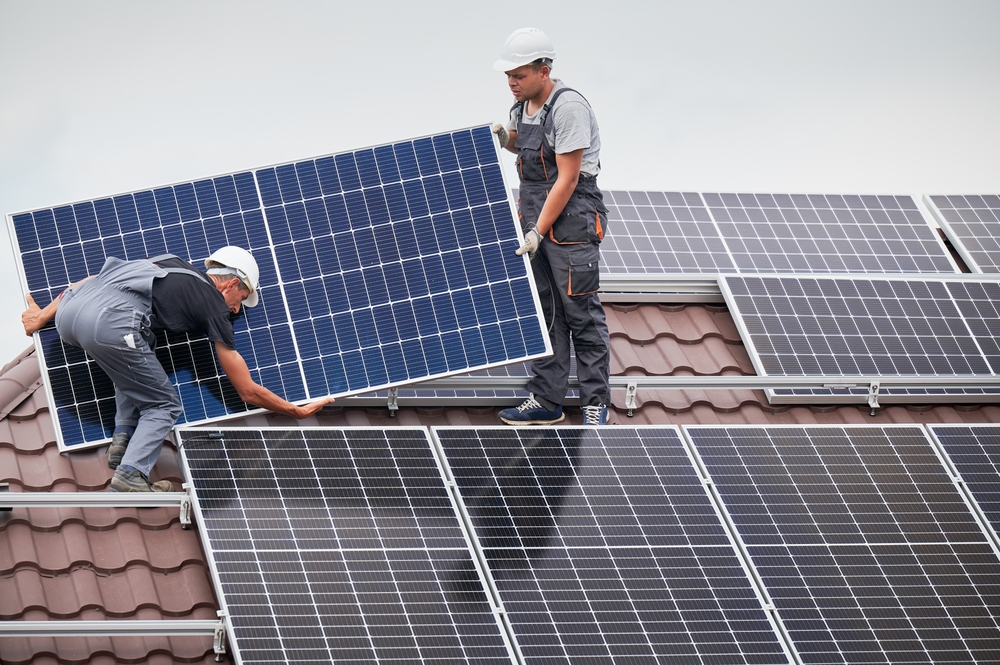Look for These Energy-Saving Features When House Hunting
Buying a new home is one of the most expensive purchases many consumers will make in their lifetime. The cost of home ownership goes beyond just monthly mortgage payments, though. Homeowners must pay for upkeep, improvements, insurance and, of course, their utility bills.
When shopping for a new home, energy-efficient features could help homeowners cut costs on their utility bills. Home buyers can look for these energy-saving features when house hunting:
- Energy-efficient HVAC systems
- Energy-efficient appliances
- Solar panels
- Smart home technology

This System Uses the Most Energy in the Home
Home buyers looking to save money on energy costs in a new home might focus on the features of the home that use the most energy. Heating and cooling the home accounts for the majority of the home’s energy use each month (more than 45 percent).
For this reason, energy-efficient heating and cooling systems might be the most desirable feature for homeowners. Typically, sellers will advertise this upgraded feature. Since an older system will likely use more energy than a newer system, home buyers also can inquire as to when the HVAC system was last replaced.
The next largest energy drain in the home is the water heater, which accounts for 14 percent of the energy use in the home. Home buyers can inquire when the water heater was last replaced and if it is energy efficient.
Look for Energy-Efficient Appliances
The washer and dryer account for 13 percent of the home’s energy consumption, and the refrigerator accounts for four percent. Home buyers can look for energy-efficient appliances when touring a new home.
In total, appliances can account for about a quarter of the home’s energy consumption. Energy-efficient appliances can help homeowners save energy and money on their utility costs.

Solar Panels Use the Sun for Power
Home buyers touring a home with solar panels might want to consider how much those panels could save them each month. Solar panels allow the home to use the power of the sun to generate electricity.
With these panels, homeowners could make a major dent on their electricity costs. However, these panels need to be maintained like everything else in the home and the panels don’t last forever.
GreenBiz reports that solar panels can last for 25 to 30 years. Even if the panels are 10 years old, they could have many years of life left. However, homeowners might want to inquire about the age of panels to better understand when they will need to replace them.
When Tech Controls the Home, Savings Could Flow
The Internet of Things (IoT) can upgrade a standard home into a smart home. With the installation of smart plugs, smart appliances and smart powerstrips, the home appliances and systems can connect to apps and mobile devices. By connecting to apps and these devices, appliances can be controlled remotely by homeowners.
The Internet of Things lets homeowners adjust the thermostat on their HVAC, turn off their lights or maybe even control their washer and dryer, too.
Refrigerators also are being designed with smart screens that let homeowners see what’s inside their fridge without even opening the door. In addition, these screens could offer other capabilities’, too.
As tech advances, appliances become smarter and the home might be wired into the digital realm. Homebuyers might look for appliances or systems with smart capabilities when they tour their favorite homes.
Other Energy-Efficient Home Features
There are numerous other features that can make a home more energy efficient. Upgraded insulation, for example, offers better protection for the home and ensures warm and cool air don’t escape and that the outdoor temperatures don’t put pressure on the HVAC system.
Windows also could be a source of energy drains. Poor-quality windows allow for drafts. These windows also could cause the HVAC system to work harder to heat and cool the home. Home buyers could inquire about the windows of the home and when they were last replaced.
Certain home designs also offer more energy efficient benefits. A geodesic dome home is designed as a domed complex and, because of its open floor plan, is energy-efficient. However, these round homes are not an accessible option to all buyers; these homes might be hard to find.
Not all homes offer energy-efficient features. Home buyers who want to live greener and save money on their energy costs could consider upgrading appliances or improving other areas of the home (like the insulation or windows).
Home buyers also could find builders that specialize in energy-efficient homes. Home buyers committed to choosing the most energy-efficient home could build a custom home to ensure that it includes all the features they demand.
When shopping for a new home, energy-efficiency could be a priority for buyers. Since heating and cooling the home uses the most energy, buyers might focus on choosing a home that offers energy-efficient heating and cooling systems. Other features like energy-efficient appliances, solar panels and even smart home capabilities also can help lower energy use and decrease utility costs. However, some buyers might choose to build a custom home to ensure that their home offers all the eco-friendly features on their list and that helps them decrease their carbon footprint and live greener.


